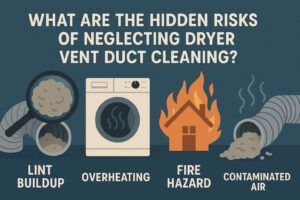Preventing Millipede Infestations in Older Homes in Bear, DE
Millipedes may not be aggressive or harmful insects, but they are certainly unwelcome guests in any household. In Bear, Delaware, where humidity and natural surroundings offer perfect conditions for millipede infestations, it’s essential to understand how to manage these pests effectively. This in-depth guide focuses on Millipede Pest Control, offering actionable tips for local residents to protect their homes.
If you’re constantly spotting millipedes indoors, it’s time to explore professional Millipede Pest Control options tailored to Bear, DE.
What Are Millipedes and Why Are They in Your Home?
Millipedes are small, cylindrical arthropods with numerous legs—two pairs per body segment. While harmless to humans, their presence indoors can be unsettling. Unlike centipedes, millipedes feed on organic matter such as decaying leaves and wood, not insects.
Behavior and Habitat
Millipedes thrive in moist, dark environments. Outdoors, they inhabit soil, mulch, compost, and under stones. When their habitat becomes too wet or dry, they often migrate indoors in search of stable, humid shelter.
Common Entry Points for Millipedes
Understanding how millipedes enter your home is crucial for prevention. These pests are not strong climbers but will squeeze through tiny cracks and crevices at the ground level.
Typical Access Routes:
- Gaps under doors and windows
- Cracks in foundation walls
- Openings where utilities enter the home
- Poorly sealed basement vents and crawlspaces
Signs of a Millipede Infestation
While a lone millipede isn’t cause for panic, repeated sightings may indicate an infestation.
Key Indicators:
- Millipedes gathered near damp basements, bathrooms, or laundry rooms
- Dead millipedes along baseboards or under furniture
- Musty odor from millipede secretions
- Excess moisture in basement or crawlspaces
Effective Prevention Strategies for Bear Homeowners
The best form of millipede control is prevention, particularly moisture reduction and sealing entry points. Below are several proactive steps:
Control Moisture Levels:
- Install a dehumidifier in the basement
- Ensure proper drainage around your foundation
- Repair leaking faucets or pipes
- Use exhaust fans in bathrooms and laundry rooms
Seal Off Entryways:
- Caulk foundation cracks and gaps
- Use door sweeps and window seals
- Screen vents and seal utility openings
- Weather-strip basement doors
Yard Maintenance Tips to Deter Millipedes
Millipedes usually begin their journey into your home from your yard. Managing your landscape is a powerful way to reduce indoor infestations.
Outdoor Guidelines:
- Keep grass and vegetation trimmed
- Remove leaf litter and organic debris
- Avoid piling mulch too close to the house
- Ensure gutters and downspouts direct water away from the foundation
DIY Millipede Control Options
While DIY methods can’t replace professional services, they can offer temporary relief.
Home Remedies:
- Vacuuming: Quickly removes visible millipedes
- Sticky traps: Useful near known entry points
- Essential oils: Tea tree and peppermint oils act as natural repellents
- Diatomaceous earth: A non-toxic powder that damages millipede exoskeletons
Always follow safety instructions when applying any pest control product, even natural ones.
When to Call the Experts
Sometimes, DIY solutions fall short—especially with recurring infestations. Professional pest technicians offer in-depth assessments and targeted solutions that address the root of the problem.
What to Expect:
- Inspection of home and surrounding yard
- Moisture level analysis
- Customized treatment plan
- Application of eco-friendly insecticides
Benefits of Local Millipede Pest Control Services
Opting for a Bear-based provider ensures local expertise and faster response times. Professionals understand the seasonal behaviors of pests in your area, allowing for more effective treatment.
Why Go Local:
- Familiarity with Bear’s environmental conditions
- Knowledge of local millipede patterns
- Customized seasonal treatment strategies
Long-Term Pest Control Planning
One-time treatments may not guarantee permanent results. Consider integrating millipede control into your regular home maintenance routine.
Recommendations:
- Schedule annual pest inspections
- Combine millipede treatments with general pest control
- Educate family members on moisture management
Millipedes as Indicators of Larger Problems
Millipedes often appear due to underlying issues like damp foundations or clogged drains. Addressing these root causes not only prevents millipede invasions but also protects your home’s structural integrity.
To tackle the issue holistically, contact Pest Control Service for expert assessment and tailored solutions.
Final Thoughts: Take Action Now
Millipedes may not carry diseases or bite, but their persistent presence signals a less-than-healthy home environment. Effective Millipede Pest Control in Bear, DE involves more than just extermination—it’s about identifying root causes, modifying your environment, and enlisting expert help when needed.
Whether you’re fighting a current infestation or seeking to prevent one, informed action today can make your home a more comfortable, pest-free space tomorrow..













